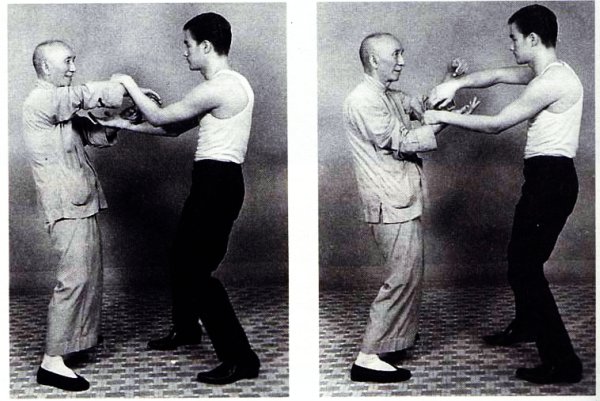
I recently received a letter from SUNY Press letting me know that The Creation of Wing Chun: A Social History of the Southern Chinese Martial Arts, will soon be released in paperback. This is wonderful news and due in no small part to the enthusiastic support we received from members of the Wing Chun community and Kung Fu Tea readers. While the original hardcover edition of this book was quite expensive (at a suggested retail price of $90) the publisher actually had trouble keeping up with demand for it. I am sure that this inspired them to make the book more widely available.
This brings us to our next big announcement. SUNY Press is currently having a substantial sale on all of their Asian Studies titles, including our book! If you order through their webpage and use the coupon code ZAAS16 before May 12th you can get up to 40% off the cost of a hardback edition, or 20% off your pre-order of the soft-cover (which is due to ship on or before July 1). That brings the price of the hardback down to about $54 and the paperback to a very comfortable $22. We are confident this new release and sale will make our study of the Southern Chinese martial arts available to much larger audiences who may not have had easy access to a university library.
To briefly summarize, we review the social, economic, and political forces that fostered the development of Wing Chun and the other southern Chinese hand combat systems. Our book also provides an extensive biographical discussion of Ip Man looking at both his introduction to the martial arts in Foshan and his subsequent efforts to introduce Wing Chun to a new generation of students (including Bruce Lee) in Hong Kong. If you would like to learn more about the contents of this book you can read the first chapter here. However I suspect that this interview, which we did with Gene Ching of Kung Fu Tai Chi magazine, will probably give you a better sense of our aims and the book’s contents.
Readers interested in the theoretical questions which drive this project may also want to watch my keynote address at the 2015 Martial Arts Studies conference titled “Imagining Ip Man: Globalization and the Growth of Wing Chun Kung Fu.” Lastly, Douglas Wile wrote a review of the volume from a martial arts studies perspective. Collectively these sources should give you a pretty good sense of the topics we covered in this project.

May 4, 2016 at 4:28 pm
Well done Ben and Jon, that’s great news. It’s a really fascinating book, and I can testify is not only of interest to Wing Chun enthusiasts. The history told in it of the nineteenth and twentieth century development of the Cantonese martial arts is of huge interest to anyone with an interest in Hong Kong martial arts cinema, too, and helps make a lot of sense of some of its recurring tropes, themes and characters, and its depiction of the martial arts. This background was a sorely needed resource for ‘kung fu’ film scholars! Going paperback is well deserved!
May 5, 2016 at 2:31 pm
Thanks! I am glad that you found it useful.
November 3, 2016 at 1:05 am
The Creation of Wing Chun is love! Thank you for sharing this article. I will show this to my friends.